medico legal medicallegal medical law health counsel
The 23rd Annual Medico Legal Congress 2026
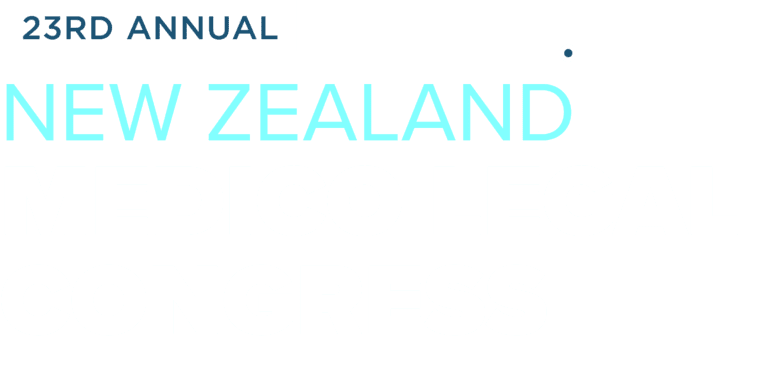
23 - 24 February 2026 | Grand Millennium, Auckland
Navigating the ever-changing medico-legal landscape of Aotearoa
Where law & medicine meet
Leading voices congregate across law, medicine, regulation, and policy to examine the complex interface between health policy, clinical practice, legislation, and ethics. Explore New Zealand’s latest health system reforms, including the Pae Ora Amendment Bill and Te Tiriti o Waitangi obligations. Learn how case law, coronial findings, and disciplinary proceedings are influencing both legal and clinical practice.
Get practical clarity on legal risks, regulatory compliance, and professional responsibilities while also engaging with the ethical challenges such as privacy, AI, workforce integration, and end-of-life care.
Join us to navigate change, manage risk, and contribute to a fair, safe, and effective health system.

Essential themes requested by you
Court case deep dives
Review of recent Coroners Court proceedings and their implications for practice. Emerging trends in court and policy.
The Pae Ora Amendment Bill, Te Tiriti in health and recent HDC cases.
Supporting the workforce
Staffing and the Law: Navigating Obligations, Risks, and Industrial Challenges.
Integrating Physician Associates into the NZ Health System.
Reflecting on recent Health Practitioners Disciplinary Tribunal Cases.
The future of medico-legal
How AI is being used in the NZ health system – risks and benefits with respect to patient privacy, organisation information and security.
End of Life Choice Act. Implications of The Police Mental Health Response Change Programme.

Who should attend?
Healthcare leaders and practitioners
Doctors, nurses, and health professionals
Hospital, healthcare and clinical directors and medical managers
Healthcare compliance, and governance leads
Legal and regulatory professionals
Lawyers and barristers specialising in health, medical, or elder law
Legal advisors to hospitals, DHBs / Te Whatu Ora, and PHOs
Policy and governance professionals
Health policy makers and government officials
Board members and executives in clinical governance and committees
Academics in law, medicine, ethics, and public health
Sector associations
Legal and clinical professional and industry bodies
Patient advocacy groups
Venue
The location and how you can get there.
Address
Grand Millennium Auckland
71 Mayoral Drive, Cnr Vincent Street, Auckland 1010
Agenda
Agenda to be announced
8:00 | Registration and coffee |
08:50 | Mihi Whakatau |
9:00 | Welcome remarks from the Chair Iris Reuvecamp, Principal, Vida Law |
9:05 | Health Practitioners and the Coroners Court: Emerging Trends and Responsibilities
Judge Anna Tutton, Chief Coroner |
9:45 | From Policy to Practice Panel: Understanding the Pae Ora Amendment Bill
Dr Marion Leighton, Consultant General Physician Louisa Wall, Chair, Tūwharetoa Iwi Māori Partnership Board Natasha Wilson, Partner, Buddle Findlay Kerri Nuku, President and Kaiwhakahaere, NZNO Dr Sue Fleming, Former NZ VP, RANZCOG |
10:30 | Morning break |
11:00 | Embedding Te Tiriti in Health: From Principles to Practice
Simon Royal, Chief Executive, Ngaa Pou Hauora |
11:30 | Protecting Patient Data: Insights and Findings from The Office of the Privacy Commissioner
Susan Allen, Compliance and Enforcement Manager, Office of the Privacy Commissioner |
12:05 | Informed Consent in Hospital Teaching: Practical Guidance for Clinicians
Michael Puttick, Chief Quality & Safety Officer, Consultant Oncoplastic Breast and Acute Care Surgeon Department of General Surgery, Auckland Hospital |
12:40 | Lunch |
13:30 | Physician Associates: Establishing the regulation of a new health profession in New Zealand
Joan Simeon, Chief Executive, Medical Council of New Zealand Christine Anderson, Registrar, Medical Council of New Zealand |
14:15 | From Regulation to Practice Panel: Integrating Physician Associates into the NZ Health System
Dr Samantha King, Medico Legal Consultant, Medical Protection Society Dr Alison Glover, General Practitioner, Te Awamutu Medical Centre Lisa deWolfe, Physician Associate and Regional Director, New Zealand Physician Associate Society Gillian Weir, Special Counsel, Dentons |
15:00 | Afternoon Break |
15:30 | Staffing and the Law: Navigating Obligations, Risks, and Industrial Challenges
Jordan Boyle, Partner, Dyhrberg Drayton Employment Law |
16:10 | Refusal of Consent by Guardians for Urgent Treatment for a Child
Simone Tune, Special Counsel, Duncan Cotterill |
16:50 | Summary remarks from the Chair |
17:00 | Day 1 Close and Networking Drinks |
8:00 | Registration and coffee |
9:00 | Welcome back from the Chair Iris Reuvecamp, Principal, Vida Law |
9:05 | Health and Disability Commissioner Address: Lessons for the system from the work of the HDC
Morag McDowell, Commissioner, Health and Disability Commission |
9:45 | Health Equity in Action Panel: Bridging Gaps in Access and Outcomes
Nick Johnston, Community Educator, Aotearoa Disability Law Centre Ronald Baker, Kaumatua, Te Rau Ora Dr Cadence Kaumoana, Chief Executive, Public Health Association |
10:30 | Morning break |
11:00 | Health Practitioners Disciplinary Tribunal Cases in Review: Lessons for Safe and Compliant Practice
Gregor Allan, Chair, New Zealand Health Practitioners Disciplinary Tribunal |
11:40 | Mental Health Response: The Police Mental Health Response Change Programme
Inspector Matthew Morris, Health Partnerships Manager, New Zealand Police |
12:20 | Law Commission – Review of the Protection of Personal and Property Rights Act 1988
Geof Shirtcliffe, Commissioner, Te Aka Matua o te Ture, Law Commission Tessa Bromwich, Principal Legal and Policy Adviser, Te Aka Matua o te Ture, Law Commission |
13:00 | Lunch |
14:00 | Withdrawing or Withholding Treatment: Rights and Responsibilities
Iris Reuvecamp, Principal, Vida Law |
14:40 | Public Advocacy and Political Neutrality: Navigating Legal Boundaries for Health Practitioners
Gaeline Phipps, Barrister, Lambton Chambers |
15:20 | AI in Aotearoa Health Care: Ethics, Equity, and Accountability
Professor Robyn Whittaker, Clinical Director for Evidence & Pathways and Data & Analytics within Planning, Funding & Outcomes, Te Whatu Ora and Chair of Te Whatu Ora’s National AI & Algorithm Expert Advisory Group |
16:00 | Summary remarks from the Chair and Conference Close |
Speakers
Speakers to be announced
More Info
Lorem ipsum dolor sit amet, consectetur adipiscing elit, sed do eiusmod tempor incididunt ut labore et dolore magna aliqua. Ut enim ad minim veniam, quis nostrud exercitation ullamco laboris nisi ut aliquip ex ea commodo consequat. Duis aute irure dolor in reprehenderit in voluptate velit esse cillum dolore eu fugiat nulla pariatur. Excepteur sint occaecat cupidatat non proident, sunt in culpa qui officia deserunt mollit anim id est laborum.
More Info
Lorem ipsum dolor sit amet, consectetur adipiscing elit, sed do eiusmod tempor incididunt ut labore et dolore magna aliqua. Ut enim ad minim veniam, quis nostrud exercitation ullamco laboris nisi ut aliquip ex ea commodo consequat. Duis aute irure dolor in reprehenderit in voluptate velit esse cillum dolore eu fugiat nulla pariatur. Excepteur sint occaecat cupidatat non proident, sunt in culpa qui officia deserunt mollit anim id est laborum.
More Info
Lorem ipsum dolor sit amet, consectetur adipiscing elit, sed do eiusmod tempor incididunt ut labore et dolore magna aliqua. Ut enim ad minim veniam, quis nostrud exercitation ullamco laboris nisi ut aliquip ex ea commodo consequat. Duis aute irure dolor in reprehenderit in voluptate velit esse cillum dolore eu fugiat nulla pariatur. Excepteur sint occaecat cupidatat non proident, sunt in culpa qui officia deserunt mollit anim id est laborum.

Morag McDowell
Read bio

Samantha King
Read bio

Iris Reuvecamp
Read bio

Kerri Nuku
Read bio

Joan Simeon
Read bio
Joan is the Chief Executive of the Medical Council of New Zealand, having spent 20 years working in medical regulation. She is also the Immediate Past Chair and a Board Member of the International Association of Medical Regulatory Authorities (IAMRA).
Joan holds a Master’s in Public Management and a post-graduate qualification in Dispute Resolution.
She has a strong interest in using medical regulatory levers, alongside influence to build public trust in the medical profession, with a focus on improving professionalism and promoting good medial practice. Joan is an advocate for equity in healthcare and sees the regulator as having a key role in achieving this.

Christine Anderson
Read bio

Jordan Boyle
Read bio

Judge Anna Tutton
Read bio
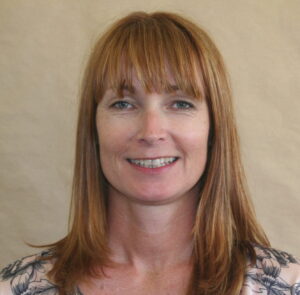
Professor Robyn Whittaker
Read bio

Susan Allen
Read bio

Gaeline Phipps
Read bio

Michael Puttick
Read bio

Inspector Matthew Morris
Read bio

Nick Johnston
Read bio

Geof Shirtcliffe
Read bio
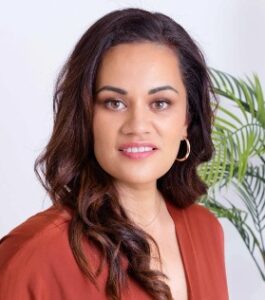
Dr Cadence Kaumoana
Read bio

Natasha Wilson
Read bio

Louisa Wall
Read bio

Truc Tran
Read bio

Simone Tune
Read bio

Lisa deWolfe
Read bio
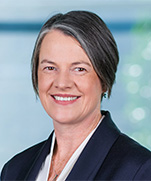
Gillian Weir
Read bio

Simon Royal
Read bio

Gregor Allan
Read bio
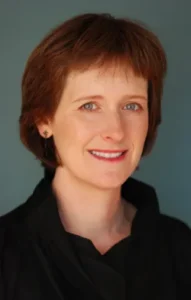
Dr Marion Leighton
Read bio

Dr Alison Glover
Read bio
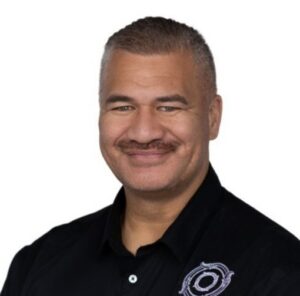
Boyd Broughton
Read bio
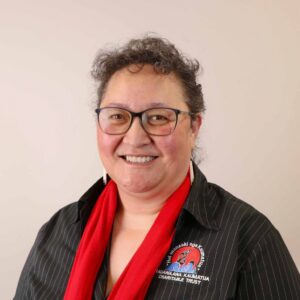
Rangimahora Reddy
Read bio

Dr Sue Fleming
Read bio

Tessa Bromwich
Read bio
Tessa Bromwich is a Principal Legal and Policy Adviser at Te Aka Matua o te Ture | Law Commission. Tessa joined the Commission in 2024. She was previously a Crown Counsel at the Crown Law Office.
Tessa has a BA and LLB (Hons) from Te Herenga Waka Victoria University of Wellington and an LLM from New York University. She is a barrister and solicitor of the High Court of New Zealand.
Separately Bookable Workshop
POST CONFERENCE
Decision-Capacity, Consent & Documentation: Legal Protections for Healthcare Practice
25 February 2026 | 9.00 AM - 12.00 PM
This interactive workshop explores the intersection of decision-making capacity, informed consent, and documentation in clinical practice.
Participants will:
- Understand New Zealand legal frameworks for consent and capacity
- Learn practical strategies for assessing capacity and obtaining informed consent, including for vulnerable populations
- Explore best practices for documenting consent discussions, capacity assessments, and involvement of supported and substitute decision-makers
- Discuss ethical dilemmas and legal risks, and strategies to mitigate them, including the role of legal counsel and ethics committees
As a healthcare provider, be equipped with practical knowledge and tools to ensure ethically sound and legally compliant decision-making and documentation.

Iris Reuvecamp
Principal
Vida Law
Want to connect with this health sector audience?
Take the unique opportunity to engage with a highly qualified health sector audience. There are some exclusive opportunities to promote your company, products and services.
Contact sponsorship@brightstar.co.nz for more information.
Don't miss out on the connections and credibility boost!
Live B2B events are your chance to shine. Showcase your thought leadership, solidify your market position, and forge valuable connections with potential customers – all at once.
This exclusive event puts you in front of a highly skilled audience hungry for insights. Get ready for meaningful engagement that drives results.
Plus, we have some unique opportunities to put your company, products, and services in the spotlight.
Ready to take your brand to the next level? Contact us today to learn more or secure your spot at this leading event.

Separately Bookable Workshop
WORKSHOP
Wednesday 25 February-
For separately bookable workshop, payment by 25 February, 2026.
Health NZ & NGO Tickets
Team 3+
-
Must be from same organisation and book at same time. For valid tickets, payment by 23 February, 2026.
Tickets Standard
Team 3+
-
Must be from same organisation and book at same time. For valid tickets, payment by 23 February 2026.
Registration Conditions
Ticket Terms
All prices are in New Zealand dollars ($NZD)
A surcharge of 2.5% + GST applies to credit card payments on top of the total amount.
Pre-Sale Tickets are valid only for the specific event for which they were purchased and cannot be transferred to other events. To remain valid, Super Saver and Early Bird tickets must be paid by date quoted.
Group ticket options are valid for registrations from the same organisation, booked at the same time.
By selecting any special pricing offer for classes of organisation, sector, or individuals or using any promotion code, you are asserting to the organiser your right to claim any such pricing offer, and acknowledge the organiser’s right to audit such claim and, if in the opinion of the organiser using its sole discretion the conditions for special pricing are not met, reject any registration.
For full terms & conditions, please visit https://www.brightstar.co.nz/terms-and-conditions
Get in touch.
Got questions? Write to us.


